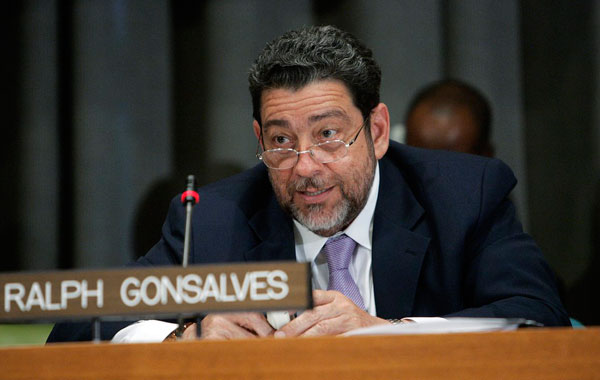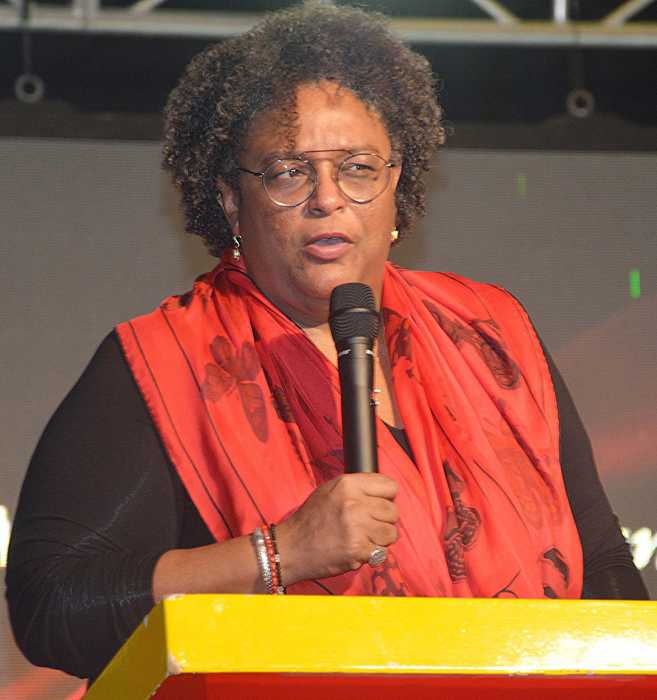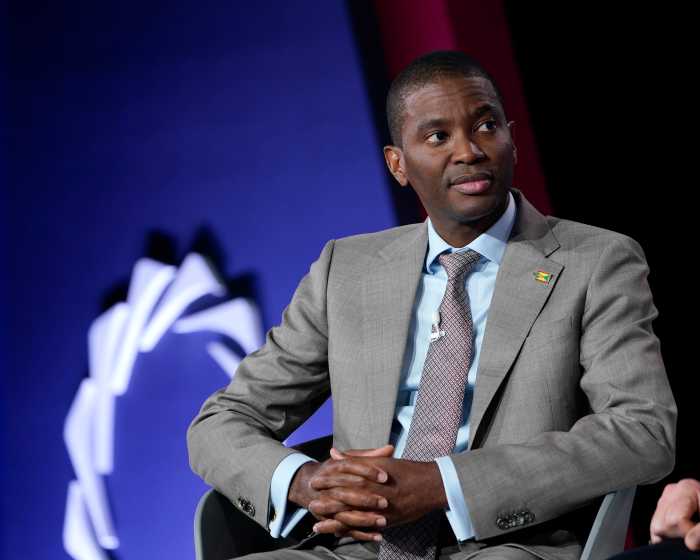Caribbean
A United Nations official say it will cost US$1 billion to repair hurricane-hit Caribbean countries hardest hit by recent hurricanes, including Dominica, Barbuda, Turks and Caicos, the British Virgin Islands and Anguilla.
UN resident coordinator for Barbados and the Eastern Caribbean States, Stephen O’Malley said “it’s going to be a large rebuilding effort that will take time.”
He said the United Nations, World Bank and the Antigua government have conducted a post-disaster needs assessment for Barbuda, whose 1,800 residents were evacuated to Antigua before Hurricane Irma damaged 95 percent of its structures on Sept. 14.
O’Malley said the effects of climate change are evident in the Caribbean, where the sea is heating up.
Antigua
Antigua and Barbuda has joined with St. Kitts and Nevis and St. Lucia in a series of fact-finding meetings with the region’s major cruise lines.
Tourism Minister Asot Michael, along with ministers of tourism for St. Kitts and St. Lucia, met with a delegation of cruise tourism officials of several Miami-based cruise lines, including Royal Caribbean Cruise Lines, Carnival Corporation, and Norwegian Cruise Lines.
Prime Minister of St. Lucia, Allen Chastanet, also used the opportunity to join in the meeting via teleconference to lend his support to the first of its kind collaborative initiative.
The meeting’s objective was to share information about the post-hurricane health of the ports and destination and to seek and update from each cruise line on short and medium term alterations to their cruise itineraries.
The tourism officials also used the opportunity to update each cruise line on the latest port and cruise facility development and the unavailability of new services such as fuel bunkering.
Barbados
The Barbados government has lifted the ban on poultry and poultry products coming from the United Kingdom.
A statement from the Ministry of Agriculture said commercial importers and the general public are now free to import live birds, hatching eggs, and fresh, frozen and chilled poultry meat and products, including table eggs, from that territory.
The decision follows the UK’s declaration of being freed from the Highly Pathogenic Avian Influenza resulting in the lifting of a ban which was placed on these products last December.
As a result, the ministry said importers may now apply to the Ministry of Agriculture’s Veterinary Services Department for permits to import poultry and poultry products from the UK.
However, persons are reminded that a ban remains on the importation of poultry and poultry products from other countries in the European Union.
Dominica
Dominica Prime Minister Roosevelt Skerrit has announced that his government will waive taxes and duties on the importation of all food and construction material for six months as the island begins the process of rebuilding, following the devastation caused by Hurricane Maria recently.
In a national broadcast, updating citizens on the progress made since the hurricane, Skerrit said his administration was not into the economic recovery phase of the rehabilitation exercise, even though rescue efforts were still continuing.
He said the government will try wherever possible to maintain the previous year’s level of government procurement, employment, wages and routine operations.
The prime minister said the insurance of property in Dominica exceeds l00 percent of the country’s gross product (GDP), noting that not all insured properties are totally destroyed.
Skerrit said the government will enforce and if necessary update building codes to ensure all new construction complies with these codes.
Guyana
Guyana’s Public Security Minister Khemraj Ramjattan says the present trend of murders and domestic violence is a result of several factors, including depression, early parenting and the manner in which persons were nurtured.
He said it is also due to relationships that have gone soured and the lack of anger management control.
Ramjattan said his ministry is working towards crafting anger management programs for communities and schools countrywide.
He noted that often persons would make changes to reports of domestic violence, or recant statements, thus causing hesitation for the police to intervene.
Ramjattan said it “is a terrible thing and our society is bleeding too much, too often and with an intensity these days.”
He was commenting on the recent killing of a 39-year-old man of the West Coast region.
Jamaica
Bank of Jamaica (BoJ) Governor Brian Wynter said the central bank is reaping positive results from the Bank of Jamaica Foreign Exchange Intervention and Trading Tool (B-FXITT).
In his presentation to the Public Administration and Appropriations Committee (PAAC) of Parliament last week, Wynter said that the 1.0 percent depreciation of the dollar up to early October compares with 7.6 percent for the similar period last year.
Wynter said B-FXITT is a rules-based competitive multiple price mechanism used by the BoJ to buy from and sell to authorized foreign exchange dealers and cambios.
He said that this arrangement does not directly affect transactions by members of the public with their authorized dealers or cambios, which continues as before.
Arguing that the exchange rate is fairly valued, the BOJ governor said that the Jamaican dollar appreciated on 66 separate days over the first half of this fiscal year, while depreciating on 60 separate days in the first half of this year.
Wynter said for the similar period in 2016-2017, the dollar appreciated on just 25 days during the year, while depreciating 104 separate days over the period.
He claimed that the macroeconomic stability in the economy is a contributory factor to the stability in the exchange rate.
Wynter said the BoJ has seen an increase in the volumes of foreign exchange being traded since the introduction of B-FXITT and other forms of reform.
Trinidad
Finance Minister Colm Imbert said it costs TT$130 million a day to run Trinidad and Tobago, which works out to be $4 billion a month to run the country.
Imbert, who was speaking to supporters at the famous Piggot’s corner, Port of Spain about the 2017/2018 budget, said when the People’s Partnership (PP) came into office in 2010 there was about TT$6 billion in cash on the government’s bank account in the Central Bank.
He said the Kamla Persad-Bissessar administration managed, between 2010 and 2012, to spend out that money and to take account from $6 billion, in May 2010 down to zero in 2012 and then down to minus $9 billion in September 2015.
The PP administration, he said used up the whole overdraft, they burnt up $15 billion in cash.
Imbert said three weeks before the national budget was presented he received a letter from Central Bank Governor Dr. Alvin Hilaire saying the country’s overdraft was at 99.7 percent of the limit, which meant there was only a couple million dollars available for the current account.
He said this was enough to run the country for about five minutes.
Imbert last week delivered the $50 billion national budget with revenue estimated at $45.74 billion.
He said the government has been able to bring expenditure from $63 billion to $50 billion.
– Compiled by Azad Ali


























